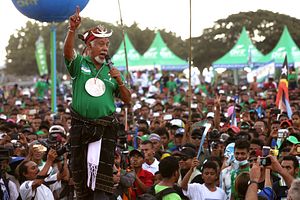On May 12, Timorese voters will go to the polls for the second time in ten months to elect the country’s parliament, as the seventh constitutional government has failed to gain parliamentary support. The early election became inevitable after the political deadlock that has paralyzed the young democracy, creating a state of uncertainty since the parliamentary election in July 2017.
The coming election is particularly significant as it will again test the strength of democracy in Timor-Leste. This time around, there is a different national mood compared to previous elections. While Timorese voters recognize that the early election is necessary, there are concerns over the costs of traveling home to vote for the second time in less than a year. Some observers foresee a lower turnout compared to last year. In addition, new uncertainty has brought out concerns over the country’s politics. Some fear a return of the political violence last seen in 2006 and others see the current deadlock as yet another indication of the dominance of fractious political elites in Timor-Leste’s politics.
The early election also shows that prolonged debate among the country’s leadership is still largely personality-driven and continues to be dominated by high-profile resistance leaders. The calling of the early election triggered questions about the principles of consensus politics and political inclusion, which leaders always pledge themselves to in the spirit of democracy. It is crucial that the early election settle the power struggle among political parties and between the coalitions so that Timor-Leste’s government can start governing properly.

































